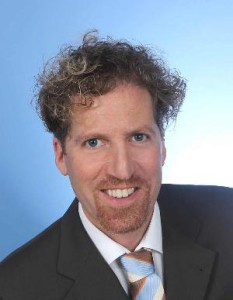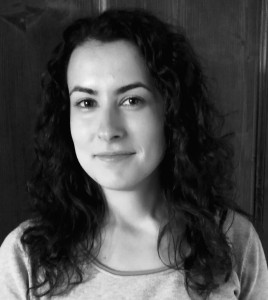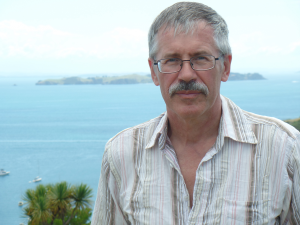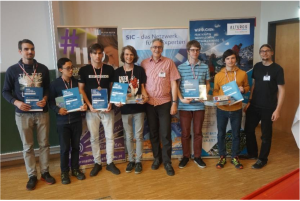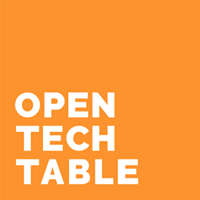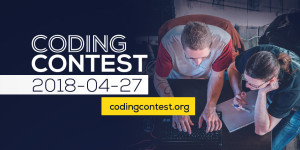„Adaptive und Vernetzte Produktionssysteme (Schwerpunkt Informatik)“
14./15. Mai 2018, E 1.42, Hauptgebäude, Südtrakt, Ebene 1
Montag, 14. Mai 2018
09:00 – 10:00: Dr. Klaus Dieter SCHEWE
Title: The CyPHER Model for End-to-End Hybrid Systems Engineering
Abstract: The notion „Industry 4.0“ emphasises a new level for the organisation and control of the complete value added chain stretching over the life cycle of products and their production systems. A key aspect is the integration of the real world and its virtual counterpart concerning models for complex products and for complex, adaptive production processes. This requires the systematic development of concurrent adaptive systems of hybrid dynamic systems (aka cyber-physical systems).
In the talk I will emphasise a model for end-to-end systems engineering comprising structural and behavioural aspects as well as refinement, simulation and verification. Structurally, the model employs block types adopted from conceptual models and constraints that can be both extended to capture integrated continuous and discrete components. Behaviourally, the model is grounded in concurrent hybrid abstract state machines. The model can be used for the systematic step-by-step modelling of products, equipment of processes, thus contributing to a method for „Industry 4.0 by Design“.
11:00 – 12.00: Dr. Jan Olaf BLECH
Title: Spatio-temporal Reasoning and Decision Support for Industrial Automation
Abstract: This talk presents work on cloud-based decision support systems for industrial automation and gives an overview on my related activities in this field such as software/system architecture and formal system descriptions. A focus is on spatio-temporal reasoning and semantic descriptions of system artifacts such as digital twins.
14:00 – 15.00: Dr. Anna FENSEL
Title: Increasing efficiency employing sensors, smart data and user engagement
Abstract: As the integration of the Internet and physical reality increases (e.g. as in the „Internet of Things“), analytical and sensor-based systems and services tend to transform quantitative input into knowledge representations with shared, transparent structures for improved interoperability, as envisioned and practiced on the Semantic Web.On the other hand, efficiency is a key characteristic of production systems, and its implementation requires an easy integration and use of information coming from heterogeneous agents and systems, deriving semantically correct decisions, planning and executing processes, advanced sharing and adaptation capacities supported by semantic rules, and effective end-user engagement. I present these settings and instruments in the application areas of energy efficiency, smart offices and factories, and digital workplaces, and demonstrate their evaluation within real industrial products, real life data and services, and real end users. Further, I outline my perspective on future development of the addressed area, particularly in the directions of cognitive computing and explainable AI.
16:00-17.00: Dr. Hans Georg FILL
Title: Digitization of Future Production Systems Using Enterprise Modeling Methods
Abstract: For the digitization of future production systems, two core aspects need to be aligned. These are a. the requirements issued from the side of management in terms of new, technology-based business models and the life-cycle of value creation, and b. the capabilities and results provided by prospective intelligent, cyber-physical systems and according resources. To achieve this knowledge-intensive alignment, it is reverted to IT-based enterprise modeling methods. These modeling methods permit to integrate the knowledge of all relevant stakeholders for designing innovative production systems using formal and semi-formal semantic structures. In addition, they act as direct interfaces to technical systems, e.g. for configuring autonomous systems, for performing data analysis, or for the execution of simulations. Most recently, the application of such enterprise modeling methods has been described for the simulation of industrial business processes in a research project for agent oriented zero defect multi-stage manufacturing as well as for the design of IT environments for cyber-physical systems in the construction industry.
Dienstag, 15. Mai 2018
09:00 – 10:00: Dr. Martin GEBSER
Titel: Wissensbasierte Methoden für den Entwurf und die Optimierung von Produktionssystemen
Kurzfassung: Universelle Such- und Optimierungsverfahren sind heutzutage in der Lage, reale Anwendungsprobleme mit Hunderttausenden von Variablen und mehreren Millionen Randbedingungen automatisiert zu lösen. Diese enorm hohe Skalierbarkeit ist dem Einsatz von ausgereiften allgemeinen Lösungsalgorithmen in Verbindung mit der Verfügbarkeit von effizienten Implementierungen zu verdanken. Darüber hinaus bilden moderne Methoden der Wissensrepräsentation die Grundlage für die kompakte und transparente Beschreibung der zu lösenden Anwendungsaufgaben. Effektive Werkzeuge für die Modellierung und Verarbeitung von Wissen stellen somit gleichermaßen Grundvoraussetzungen für die flexible Einsatzbarkeit und die allgemeine Akzeptanz von hochautomatisierten Lösungsprozessen dar. Mein Vortrag beschreibt und illustriert die praktische Umsetzung entsprechender wissensbasierter Methoden anhand von komplexen betrieblichen Anwendungen in den Bereichen Logistikmanagement, Personalplanung und Produktionsoptimierung.
11:00 – 12:00: DI DDr. Philipp HUNGERLÄNDER
Titel: Lösung eines Flottenoptimierungsproblems mit strukturierten Zeitfenstern für eine der weltweit größten Supermarktketten
Kurzfassung: Heutzutage bieten alle großen Lebensmittelhändler Online-Shopping-Services an, bei denen die Kundinnen und Kunden auf der Website des Supermarkts die gewünschten Lebensmittel sowie ein passendes Lieferzeitenfenster auswählen. Das Ziel unseres gemeinsamen Forschungsprojekts mit einer der weltweit größten Supermarktketten war es, einen stabilen und schnellen Optimierungsansatz zu entwerfen, der in der Lage ist, effiziente Fahrtrouten für eine große Anzahl von Kundinnen und Kunden und Fahrzeugen in Echtzeit zu bestimmen. Effizientere Touren sparen dabei nicht nur Geld, sondern sie erlauben es auch, zusätzliche Kundinnen und Kunden zu beliefern und bei jeder Bestellung mehr verfügbare Zeitfenster anzuzeigen, was zu einer höheren Kundenzufriedenheit führt. Unser Optimierungsansatz verbesserte die Effizienz der Routen verglichen mit dem vorherigen System der Supermarktkette um fast 10%, wodurch jährliche Kostensenkungen in Millionenhöhe erzielt werden konnten. Konzeption und Planung des zukünftigen Forschungsportfolios: Mein vorrangiges Ziel in diesem Bereich ist es ein anspruchsvolles und zukunftsorientiertes, international sichtbares Forschungsprogramm im Bereich Industrie 4.0 aufzubauen und voranzutreiben sowie den Transfer der Forschungsresultate in die betriebliche Praxis sicherzustellen. Von den in der Ausschreibung genannten methodischen Forschungsschwerpunkten decke ich mit meiner bisherigen Forschung insbesondere jenen des Automated Plannings ab. Allerdings ergaben sich im Rahmen meiner Forschungs- und Lehrtätigkeit auch zahlreiche Berührungspunkte mit den Bereichen Multi Agent Systems, Machine Learning und Autonomous Adaptive Systems. Zur Lösung von in der Praxis auftretenden Forschungsfragen, insbesondere für Problemlösungsansätze in Produktion und Supply-Chain-Netzwerken, ist es meiner Erfahrung nach oftmals erforderlich Ansätze und Methoden verschiedener Bereiche (z.B. Künstliche Intelligenz, heuristische Suchverfahren, Simulationstechniken, neuronale Netzwerke, …) miteinander zu kombinieren und zu integrieren. Daher würde aus meiner Sicht der zu besetzenden Professur auch eine wichtige Funktion als Schnittstelle und Bindeglied zwischen den bereits an der AAU (insbesondere natürlich an der technischen Fakultät) und an der TU Graz etablierten relevanten Forschungsschwerpunkten und den involvierten Industriepartnern zukommen.
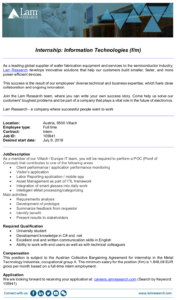 As a leading global supplier of wafer fabrication equipment and services to the semiconductor industry, Lam Research develops innovative solutions that help our customers build smaller, faster, and more power-efficient devices.
As a leading global supplier of wafer fabrication equipment and services to the semiconductor industry, Lam Research develops innovative solutions that help our customers build smaller, faster, and more power-efficient devices.
